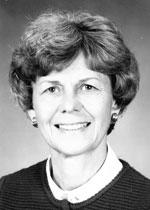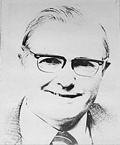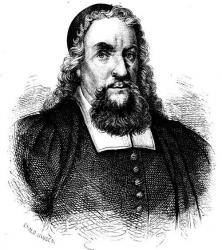Planning worship?
Check out our sister site, ZeteoSearch.org,
for 20+ additional resources related to your search.
- |
User Links
Person Results
Richard Runciman Terry

1865 - 1938 Person Name: Richard Runciman Terry, 1865-1938 Scripture: Matthew 26:26-29 Composer of "BILLING" in Singing the Faith Terry, Richard R., was born at Morpeth, Jan. 3, 1868, and was Tate Choral Scholar at King's College, Cambridge. In 1896 he became organist and music-master at Downside R. C. College and Abbey, Bath; and in 1901 organist and director of the choir at Westminster Cathedral (R. C.) London. He contributed to A. E. Tozer's Catholic Hymns, 1898, thirteen tunes and the words of two hymns:—
1. Christ, the Lord, is my true Shepherd. Ps. xxiii.
2. Peaceful eve, so still and holy. Christmas Carol. It is marked as D. C. B., i.e. for Downside Coll., Bath.
The tune by Mr. Tozor was published in 1881 to a carol beginning with the same first line, but otherwise entirely different.
--John Julian, Dictionary of Hymnology, New Supplement (1907)
Richard Runciman Terry
Janet Lunt
Scripture: Matthew 26:26-28 Author of "Broken for me" in Complete Anglican Hymns Old and New
Janet Lunt
Carolyn Jennings

b. 1936 Person Name: Carolyn Jennings, b. 1936 Scripture: Matthew 26:26-29 Translator of "Somos pueblo que camina (We Are People on a Journey)" in Lift Up Your Hearts Carolyn Jennings (born August 16, 1936) is a Professor Emerita of Music at St. Olaf College where she taught for many years and also served in administrative roles, including Chair of the Music Department and Associate Dean for the Fine Arts. Carolyn Jennings is a graduate of the University of Iowa with a Bachelor of Arts degree in music magna cum laude and the University of Michigan where she received her Master of Music degree as a Woodrow Wilson Fellow. She also served as a church musician for over thirty years, at St. John's Lutheran Church in Northfield, Minnesota.
Over many years she has served on arts advisory panels, as a workshop presenter, and in leadership roles in several professional organizations. She has been active in promoting the use of inclusive language in texts for singing, and has worked to heighten awareness of how language shapes as well as expresses thought.
Her compositions and arrangements include works for voices, orchestra, and piano. She particularly enjoys composing for voices. Among her many commissioned works are a children's musical, a choral song cycle, a composition for the Minnesota Aids Quilt Songbook, and many compositions for church, school and community choirs. She has received major grants from the Composers Commissioning Program through the Minnesota Composers Forum. Choral compositions and arrangements by Carolyn Jennings are widely sung by church, community, college and school choirs. Her publications include over a hundred choral compositions and arrangements, a number of text translations, contributions to several hymnals, and articles for professional journals.
She has been active in the American Choral Directors Association, the Music Teachers National Association, the Minnesota Composers Forum, the Association of Lutheran Church Musicians, and as a guest conductor and workshop leader.
--apimusic.org/composers
Carolyn Jennings
Johann Franck

1618 - 1677 Person Name: Johann Franck, 1618-1677 Scripture: Matthew 26:26-29 Author (stanzas) of "Vengo a ti, Jesús amado (Soul, Adorn Yourself with Gladness)" in Lift Up Your Hearts Johann Franck (b. Guben, Brandenburg, Germany, 1618; d. Guben, 1677) was a law student at the University of Köningsberg and practiced law during the Thirty Years' War. He held several positions in civil service, including councillor and mayor of Guben. A significant poet, second only to Paul Gerhardt in his day, Franck wrote some 110 hymns, many of which were published by his friend Johann Crüger in various editions of the Praxis Pietatis melica. All were included in the first part of Franck’s Teutsche Gedichte bestehend im geistliche Sion (1672).
Bert Polman
=============
Franck, Johann, son of Johann Franck, advocate and councillor at Guben, Brandenburg, was born at Guben, June 1, 1618. After his father's death, in 1620, his uncle by marriage, the Town Judge, Adam Tielckau, adopted him and sent him for his education to the schools at Guben, Cottbus, Stettin and Thorn. On June 28, 1638, he matriculated as a student of law at the University of Königsberg, the only German university left undisturbed by the Thirty Years' War. Here his religious spirit, his love of nature, and his friendship with such men as Simon Dach and Heinrich Held, preserved him from sharing in the excesses of his fellow students. He returned to Guben at Easter, 1640, at the urgent request of his mother, who wished to have him near her in those times of war during which Guben frequently suffered from the presence of both Swedish and Saxon troops. After his return from Prague, May, 1645, he commenced practice as a lawyer. In 1648 he became a burgess and councillor, in 1661 burgomaster, and in 1671 was appointed the deputy from Guben to the Landtag (Diet) of Lower Lusatia. He died at Guben, June 18, 1677; and on the bicentenary of his death, June 18, 1877, a monumental tablet to his memory was affixed to the outer wall of the Stadtkirche at Guben (Koch, iii. 378-385; Allgemeine Deutsche Biographie, vii. 211-212; the two works by Dr. Hugo Jentsch of Guben, Johann Franck, 1877, and Die Abfassungszeit der geistlichen Lieder Johann Franck's, 1876).
Of Franck's secular poems those before 1649 are much the best; his later productions becoming more and more affected and artificial, long-winded and full of classical allusions, and much inferior to those of Dach or Opitz. As a hymn writer he holds a high rank and is distinguished for unfeigned and firm faith, deep earnestness, finished form, and noble, pithy, simplicity of expression. In his hymns we miss the objectivity and congregational character of the older German hymns, and notice a more personal, individual tone; especially the longing for the inward and mystical union of Christ with the soul as in his "Jesus, meine Freude." He stands in close relationship with Gerhardt, sometimes more soaring and occasionally more profound, but neither on the whole so natural nor so suited for popular comprehension or Church use.
His hymns appeared mostly in the works of his friends Weichmann, Crüger and Peter. They were collected in his Geistliches Sion, Guben, 1674, to the number of 110; and of these the 57 hymns (the other 53 being psalm versions of no great merit) were reprinted with a biographical preface by Dr. J. L. Pasig as Johann Franck's Geistliche Lieder, Grimma, 1846. Two of those translated into English are from the Latin of J. Campanus (q. v.). Four other hymns are annotated under their own first lines:—"Brunquell aller Güter"; "Dreieinigkeit der Gottheit wahrer Spiegel"; "Jesu, meine Freude"; "Schmücke dich, o liebe Secle." The rest are:—
i. Hymns in English common use: --
i. Erweitert eure Pforten . [Advent]. Founded on Psalm xxiv. 7-10. First published in C. Peter's Andachts-Zymbeln, Freiberg, 1655, p. 25, in 7 stanzas of 8 lines; repeated 1674, p. 3, and 1846, p. 3, as above. Included in the 1688 and later editions of Crüger's Praxis pietatis, in Bollhagen's Gesang-Buch, 1736, &c.
The only translation in common use is:—-
Unfold your gates and open, a translation of st. 1, 3, 6, by A. T. Russell, as No. 30 in his Hymns & Psalms, 1851; repeated altered as No. 30 in Kennedy, 1863, and thus as No. 102 in Holy Song, 1869.
ii. Herr Gott dich loben wir, Regier. Thanksgiving for Peace. Evidently written as a thanksgiving for the conclusion of the Thirty Years' War, by the Peace of Westphalia, Oct. 24, 1648. First published in the Crüger-Runge Gesang-Buch, Berlin, 1653, No. 306, in 9 st. of 8 l., as the first of the "Hymns of Thanksgiving for Peace attained"; and repeated 1674, p. 182, and 1846, p. 77, as above. Included in Crüger's Praxis, 1653, and many later collections, and, as No. 591, in the Unverfälschter Liedersegen, 1851. The only translation in common use is:—
Lord God, we worship Thee, a very good version of st. 2, 3, 6, 8, by Miss Winkworth in her Chorale Book for England, 1863, No. 183. Repeated in full in the Society for Promoting Christian Knowledge Church Hymns, 1871; the Hymnary, 1872; the Psalmist, 1878; and in America in the Pennsylvania Lutheran Church Book, 1868. In the American Protestant Episcopal Collection, 1871; the Hymns & Songs of Praise, N. Y. 1874; and the Ohio Lutheran Hymnal, 1880, the translation of stanza 8 is omitted.
iii. Herr ich habe missgehandelt. Lent. Of this fine hymn of penitence stanza i. appeared as No. 19 in Cruger's Geistliche Kirchenmelodien , Leipzig, 1649. The full form in 8 stanzas of 6 lines is No. 41 in the Crüger-Runge Gesang-Buch, Berlin, 1653, entitled "For the forgiveness of sins," repeated 1674, p. 39, and 1846, p. 37, as above. Included in Crüger's Praxis, 1653, and others, and in the Unverfälschter Liedersegen, 1851. The only translation in common use is:—
Lord, to Thee I make confession, a very good translation, omitting st. 4, 5, 6, by Miss Winkworth in her Chorale Book for England, 1863, No. 44, repeated in the Appendix to the Hymnal for St. John's, Aberdeen, 1865-1870; and in the Pennsylvania Lutheran Ch. Book, 1868; Evangelical Hymnal, N. Y., 1880; Ohio Lutheran Hymnal, 1880. Another translation is: "Lord, how oft I have offended," by N. L. Frothingham, 1870, p. 177.
iv. Herr Jesu, Licht der Heiden. Presentation in the Temple. Founded on the account in St. Luke ii., and probably the finest hymn on the subject. Dr. Jentsch, 1876, p. 9, thinks it was written before Dec. 8, 1669, as C. Peter, who died then, left a melody for it. We have not found the full text earlier than 1674, as above, p. 10, in 6 stanzas of 8 lines, entitled "On the Festival of the Purification of Mary" (1846, p. 10). Included in the 1688 and later editions of Crüger's Praxis, and in the Unverfälschter Liedersegen, 1851, No. 197. The translations in common use are:—
1. Light of the Gentile world , a translation, omitting st. 6, by Miss Winkworth in the first service of her Lyra Germanica, 1855, p. 193 (ed. 1876, p. 195), and thence as No. 147 in the Pennsylvania Lutheran Hymn Book, 1865. This version is in S.M. Double.
2. Light of the Gentile Nations, a good translation, omitting st. 6, by Miss Winkworth in her Chorale Book for England, 1863, No. 80. Repeated in Dr. Thomas's Augustine Hymn Book, 1866, and in America in the Pennsylvania Lutheran Church Book, 1868, and the Ohio Lutheran Hymnal, 1880.
ii. Hymns not in English common use:
v. Du geballtes Weltgebäude. Christ above all earthly things. Stanza i. in Cruger's Kirchenmelodien, 1649, No. 116. The full text (beginning "Du o schönes) is No. 239 in the Crüger-Runge Gesang-Buch, 1653, in 8 stanzas, entitled "Longing after Eternal Life." Repeated, 1674, p. 194, and 1846, p. 60, as above. The translations are: (1) "Let who will in thee rejoice," by Miss Winkworth, 1855, p. 180 (1876, p. 182). (2) "O beautiful abode of earth," by Miss Warner, 1858 (1861, p. 233). (3) "Thou, O fair Creation-building," by N. L. Frothingham, 1870, p. 232.
vi. Unsre müden Augenlieder. Evening. Probably written while a student at Königsberg. First published in J. Weichmann's Sorgen-lägerin, Königsberg, 1648, Pt. iii., No. 4, in 7 st.; repeated 1674, p. 213, and 1846, p. 91, as above. The only translation is by H. J. Buckoll, 1842, p. 79, beginning with st. vi., "Ever, Lord, on Thee relying." [Rev. James Mearns, M.A.]
--John Julian, Dictionary of Hymnology (1907)
Johann Franck
Martin H. Franzmann
1907 - 1976 Person Name: Martin Franzmann, 1907-1976 Scripture: Matthew 26:51-55 Author of "Weary of All Trumpeting" in With One Voice Born: January 29, 1907, Lake City, Minnesota.
Died: March 28, 1976, Cambridge, England.
Martin H. Franzmann
Christopher Walker
b. 1947 Person Name: Christopher Walker (b. 1947) Scripture: Matthew 26:39 Author of "Alleluia, alleluia" in Church Hymnary (4th ed.)
Christopher Walker
Fintan O'Carroll

1922 - 1981 Person Name: Fintan O'Carroll (d. 1977) Scripture: Matthew 26:39 Author of "Alleluia, alleluia" in Church Hymnary (4th ed.) Fintan O’Carroll was born on 31st July 1922 in Wexford, and spent most of his life in Waterford. On completion of his secondary school studies Fintan took up a position as a Clerk in C.I.E., the national railway.
He won first prize in a traditional music competition, aged 12, playing violin, and went on to study violin at home, taking lessons as and when the opportunity arose. While working at C.I.E. Fintan undertook a correspondence course in Music from Trinity College, Dublin. His heart was in music, and he left C.I.E. in 1967 after 27 years service, whereupon he completed his degree at Trinity to gain his B.Mus. along with the Prout Prize for the most outstanding student of the year. All the time Fintan had taken a keen interest in composition, particularly sacred music. Fintan became a fulltime teacher at the Presentation Convent Secondary School in Waterford, a job which payed about half the salary in C.I.E. at the time. He supplemented his income by taking 52 private pupils, conducting 2 brass bands, and led the orchestra in every musical show that offered.
Some of the many musical organizations that owe a debt of musical gratitude to Fintan, whether it be as leader, violinist, conductor, organist, composer, or founder include Waterford Orchestral Players; Waterford Festival of Light Opera Orchestra; St Saviours Church, Bridge Street; the Franciscan Friary; the Church of SS Josephs and Benildus; St Patrick’s; Waterford Cathedral; St Patrick’s Brass Band; HFC Brass Band, New Ross; Mount Sion Silver Band. It is particularly with the brass bands that we are interested and it is fair to say that Fintan brought a sense of musicality and musicianship to these bands which helped greatly in the development of their players and the achievement of competition successes at all levels. Many musicians have commented later in their life that it was the love of music instilled in them by Fintan that carried them through their own musical lives.
One of the proudest moments of Fintan’s musical career must have been when his Mass of the Immaculate Conception was chosen for the occasion of the visit of Pope John Paul II to Limerick in 1979. He took part in the Offertory Procession on this momentous occasion.
Fintan died in July 1981 and was survived by his wife Josephine, a fine contralto voice, and whom he credits with much of his own success. They had six children: Fiona, Deirdre, Fergus, Declan, Kevin, Aoileann, and Cian, many of which play a very active role in the musical life of Waterford and beyond.
--www.mountsionsilverband.org/history/
Fintan O'Carroll
Hugo Distler
1908 - 1942 Person Name: Hugo Distler, 1908-1942 Scripture: Matthew 26:51-55 Composer of "DISTLER" in With One Voice
Hugo Distler
Jan Bender
1909 - 1994 Person Name: Jan Bender, 1909-1994 Scripture: Matthew 26:51-55 Arranger of "DISTLER" in With One Voice Bender, Jan Oskar was born on February 3, 1909 in Haarlem, Netherlands. He moved with his mother to Lubeck Germany, to study organ and conducting and theory. He became an organist at St. Gertrude in Lubeck. Jan served in the military during World War II. After the war he served as a visiting professor and organist at Valparaiso University in Indiana, and the University of Denver. In 1960 he emigrated to the United States and settled in Seward, Nebraska, where he was a teacher. He also taught at Concordia Teachers College and Wittenberg University in Springfield Ohio. In 1976 he retired to Hanerau, Germany. In 1979 he served as visiting professor at Valparaiso University, in 1979-1981 at Gustavus Adolphus College in St Peter Minnesota, and in 1982 at Lutheran Theological Seminary in Columbia, South Carolina. Bender was very involved with hymnody. Many of his compositions use chorale tunes (and texts), both in cantatas and choral settings. He died on December 29, 1994 in Hanerau, Germany. He died on December 29, 1994 in Hanerau, Germany Holstein.
NN, Hymnary. Source: http://composers-classical-music.com/b/BenderJan.htm
Jan Bender
Haqvin Spegel

1645 - 1714 Person Name: Haquin Spegel Scripture: Matthew 26:26-29 Author of "The Death of Jesus Christ, Our Lord" in The Lutheran Hymnal Haquin Spegel (Haqvin) (14 June 1645 – 17 April 1714), born Håkan Spegel in Ronneby in Blekinge (today in Sweden), was a religious author and hymn writer who held several bishop's seats.
See also in:
Wikipedia
Haqvin Spegel


 My Starred Hymns
My Starred Hymns

